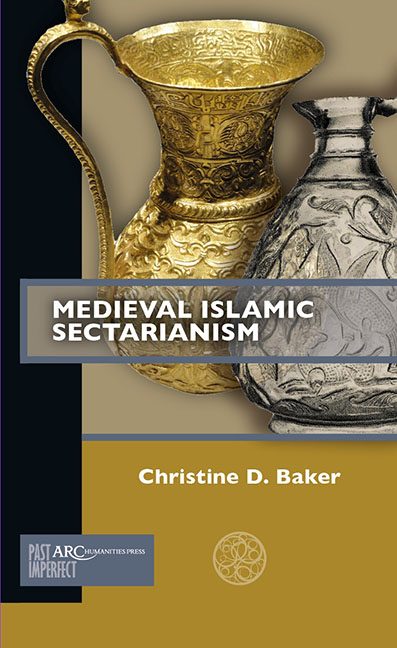Book contents
- Frontmatter
- Contents
- Acknowledgements and a Note on Transliteration
- Timeline
- Introduction
- Chapter 1 When did Sunnism Become Orthodox?
- Chapter 2 Non-Sunni Islams Before the Tenth Century
- Chapter 3 The Fatimids and Isma‘ili Shi‘ism in North Africa
- Chapter 4 The Buyids and Shiʿism in Baghdad
- Conclusion. Reactions to the Shiʿi Century
- Glossary of Key Terms
- Further Reading
- Frontmatter
- Contents
- Acknowledgements and a Note on Transliteration
- Timeline
- Introduction
- Chapter 1 When did Sunnism Become Orthodox?
- Chapter 2 Non-Sunni Islams Before the Tenth Century
- Chapter 3 The Fatimids and Isma‘ili Shi‘ism in North Africa
- Chapter 4 The Buyids and Shiʿism in Baghdad
- Conclusion. Reactions to the Shiʿi Century
- Glossary of Key Terms
- Further Reading
Summary
In part, our understanding of contemporary sectarianism in the Middle East is based on a misunderstanding of the origins and development of Muslim sectarian identities. We tend to view Sunni Islam as the original or orthodox Islam while we portray all other Islams, such as Shiʿism, as heterodox deviations from the original. This book aims to dispel this misconception. While Sunni Islam eventually became politically and numerically dominant, Sunni and Shiʿi identities took centuries to develop as independent communities with fully articulated theologies and practices. Rather than seeing Sunnis and Shiʿis as having split and never come back together, it is more accurate to view the early Muslim community as espousing a diversity of formulations of Islam that eventually, over centuries, narrowed into the sectarian identities that we can recognize today.
Further, due to modern sectarian conflicts, we tend to assume that enmity and violence have been a constant feature of the Sunni–Shiʿi relationship. On the contrary, this book will reveal how the idea of Muslim sectarian hostility developed relatively late in Islamic history by analysing two tenth-century Shiʿi dynasties, the Fatimids (909–1171) of North Africa and the Buyids (945–1055) of Iraq and Iran, investigating how they articulated their power, and how local Sunnis reacted to them.
Islamic sectarianism has received a great deal of attention recently due to contemporary events in the Middle East: the collapse of Iraq following the U.S. invasion in 2003, the ongoing Syrian civil war, protests led by Shiʿi groups in Yemen and the Gulf States, the tension between Sunni Saudi Arabia and Shiʿi Iran, and the rise of extremist Sunni organizations like Daesh/ISIS and al-Qaeda that violently target Shiʿi Muslims. These current conflicts in the Middle East, with their empha-sis on sectarian identities, have led historians and political scientists to coin the term “sectarianization” as the process by which political actors use aspects of sectarian identity to exacerbate existing conflicts for their own benefit.
It can be easy to blame sectarianism for contemporary and historical conflicts in the Middle East, especially when the causes seem hard to explain.
- Type
- Chapter
- Information
- Medieval Islamic Sectarianism , pp. 1 - 16Publisher: Amsterdam University PressPrint publication year: 2019



